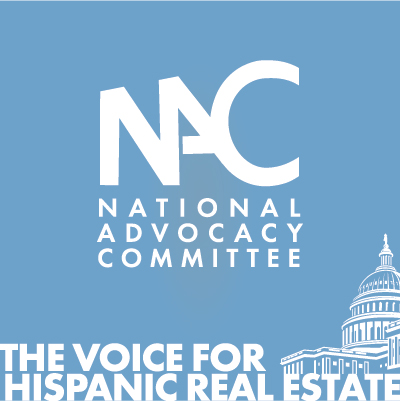Immigration Bill Introduced in Congress
Celebrating NAHREP familia, cultura, politics, and grassroots action
January 28, 2021
Qué onda mi gente?!
Let’s talk about immigration today. I am declaring it into the universe:
We will pass comprehensive immigration reform by the end of the year.
Who is with me here?
I’ve had a front row seat to two previous attempts at passing an immigration reform bill in Washington D.C. The reason these bills haven’t passed is because immigration is HARD. Immigration is what is known in politics as a wedge issue, or issues that invoke strong responses from both sides. Anger is probably the most common reaction to immigration reform, on both sides. Some believe it will lead to a “takeover” (speaking to people’s racism and xenophobia) or a feeling that something will be taken away from them. On the other side, Latino and immigrant activists are angry and frustrated that they have waited patiently for decades now and have been taken for granted without any movement on immigration reform time and time again. So, when you have two politically and emotionally charged sides on the issue, it is going to be one hard battle.
We have to be steadfast, however, and lead with a push for immigration reform that is economic in nature: Passing comprehensive reform this year will be critical to the country’s economic recovery. So let’s go over what has happened over the past week on immigration.

The immigration proposal introduced in Congress
On day one of his administration, President Biden sent the following immigration plan to Congress. The bill was introduced by Senator Bob Menendez, a U.S. Senator from New Jersey and friend of NAHREP. Expect Senator Menendez to play a leadership role on getting this bill through Congress.
Here are the highlights:
- A Path to Citizenship in 8 years: The proposal, if passed, would give the 11 million undocumented immigrants living in the U.S. a chance to become citizens. Immigrants would be eligible to apply for legal permanent resident status after five years, and for citizenship three years after that. Green cards would be granted only if they pass criminal and national security background checks and pay their taxes.
Specific groups, such as DREAMers, Temporary Protective Status (TPS) and essential workers, would be eligible to apply for green cards immediately under the legislation. After three years, all green card holders who pass additional background checks and demonstrate knowledge of English and U.S. civics can apply to become citizens. Applicants must be physically present in the United States on or before January 1, 2021. This bill is meant for people who are already here. - Family-Based Immigration Reform: The proposal would allow immigrants with approved family sponsorship petitions to join their family members in the United States on a temporary basis. This would clear backlogs, recapture unused visas, eliminate lengthy wait times and increase per country visa caps.
- Refugees and Asylum Seekers: The proposal would restore and expand programs for refugees and asylum seekers by providing new funding for foreign aid for Central American countries, increase opportunities for foreigners to work in the United States and enhance security at the border through new technologies instead of through the border wall.
The Strategy
By sending this proposal to Congress on his first day in office, President Biden signaled that it was a top priority for him. However, we have to maintain pressure to make sure this isn’t just a ceremonial act. An important thing to remember is that any administration has the most leverage during his or her first 100 days of office, or at least during the first year. In the second year of a presidential administration, things start getting more political and decisions are weighed against the midterm elections. So the time is now or never.
There is talk about breaking the bill up, which many think will certify that we won’t get the sweeping elements of compressive immigration reform passed, such as a path to legalization for immigrants in the country today.
A lot has to happen in order to see a bill at President Biden’s desk by the end of the year. Putting an end to the filibuster is one of them, but that’s super controversial. In a future blog, I’ll break down the history and politics of the filibuster.
Look, this is the most aggressive agenda on immigration since President Reagan’s Immigration Reform and Control Act of 1986, which granted legal status to 3 million people who were in the country without documentation. However, leaders do not pass difficult bills like this alone. Each and every one of you needs to be involved in getting it passed. But, if you’re up for the challenge, I’m up for the dance. NAHREP WILL play a leading role in this fight.

About Noerena Limón
Noerena Limón is NAHREP’s Executive Vice President of Public Policy and Industry Relations. Noerena heads the organization’s policy and advocacy efforts on issues ranging from homeownership, housing inventory, credit access and immigration.
Prior to joining NAHREP, Noerena spent six years at the Consumer Financial Protection Bureau (CFPB) and served as a political appointee under President Obama in the White House Office of Political Affairs.



